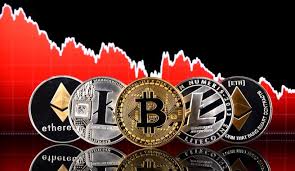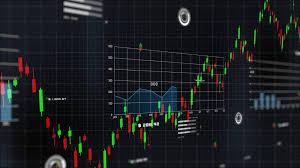
In recent years, the cryptocurrency market has seen exponential growth, leading to an influx of trading software solutions designed to assist traders in navigating this volatile landscape. Whether you’re a novice looking to dip your toes into the crypto waters or a seasoned trader aiming to optimize your strategies, choosing the right trading software is crucial for success. For further insights into cryptocurrency trading solutions, you can Trading Software Crypto visit website. In this article, we will explore the various types of trading software available, their features, and how they can be leveraged to enhance your trading experience.
Understanding Trading Software
Trading software refers to programs used for trading financial assets, including stocks, forex, and cryptocurrencies. These platforms enable traders to analyze market conditions, execute trades, and manage their portfolios efficiently. In the realm of cryptocurrencies, trading software can significantly enhance your ability to respond to market fluctuations and make informed trading decisions.
Types of Trading Software
1. Web-based Trading Platforms
Web-based trading platforms are accessible via web browsers, allowing users to trade from any device with internet connectivity. These platforms are advantageous for traders who prioritize flexibility and ease of use. Users do not need to download or install any software, making web-based platforms ideal for quick trading decisions on the go.
2. Desktop Trading Software
Desktop trading software requires installation on a computer and usually offers more advanced features and customization options compared to web-based solutions. They are typically more powerful and stable, providing users with comprehensive tools for analysis and seamless order execution. Desktop platforms cater to serious traders who require the best in performance and features.
3. Mobile Trading Apps
With the rise of mobile technology, many trading platforms offer dedicated mobile applications. These apps allow traders to monitor their positions, execute trades, and receive real-time notifications while on the move. Mobile trading apps bridge the gap between convenience and accessibility, enabling traders to stay connected to the market at all times.
Key Features of Trading Software
When selecting trading software, it’s essential to consider key features that can impact your trading effectiveness:
1. Charting Tools
Advanced charting tools are essential for analyzing market trends and price movements. Trading software should provide various technical indicators and analysis tools that enable traders to identify patterns and make informed decisions based on data.
2. Order Execution Speed
The speed at which your trades are executed can significantly affect your profits, especially in volatile markets like cryptocurrency. Effective trading software ensures rapid order execution to capitalize on fleeting opportunities.
3. Security Features
Security is a top concern in the crypto space due to the frequency of hacking incidents. Reliable trading software must incorporate robust security features, including two-factor authentication (2FA) and encryption protocols, to protect users’ funds and personal information.
4. User-friendly Interface
An intuitive interface allows traders to navigate the platform seamlessly. A user-friendly design can reduce learning curves for new traders and enhance the overall trading experience.
5. Compatibility with Multiple Exchanges

Good trading software should allow users to connect with multiple cryptocurrency exchanges. This feature enables traders to access a wider variety of markets and take advantage of pricing discrepancies between different platforms.
Popular Trading Software for Crypto
Several trading software platforms have gained recognition for their functionality and user base among cryptocurrency traders:
1. Binance
As one of the largest cryptocurrency exchanges in the world, Binance offers its own trading platform with a wide array of trading tools. The platform supports spot trading, futures trading, and margin trading, granting users comprehensive trading options.
2. Coinbase Pro
Coinbase Pro (formerly GDAX) is a popular choice for traders seeking a professional trading experience. It offers advanced trading features, including limit orders and advanced charting tools, while maintaining a focus on security and user-friendliness.
3. Kraken
Kraken is known for its strong security measures and range of available cryptocurrencies. The platform provides features suitable for both beginners and advanced traders, making it a versatile choice in the trading software landscape.
4. TradingView
While not a trading platform itself, TradingView is an incredibly popular charting tool that traders utilize to perform technical analysis. The platform provides collaboration features, allowing traders to share ideas and strategies with one another.
The Future of Trading Software in Crypto
As the cryptocurrency market continues to evolve, the need for advanced trading software becomes increasingly apparent. The future of trading software in crypto may be shaped by several trends:
1. AI and Machine Learning
Artificial intelligence (AI) and machine learning technologies are likely to become integral to trading software. These technologies can analyze vast amounts of data to identify trends and make predictions, enabling more accurate trading decisions.
2. Decentralized Finance (DeFi)
The rise of DeFi applications is leading to the development of trading software that allows users to trade directly from their wallets without intermediaries. This shift could bring greater financial autonomy to traders.
3. Enhanced Security Measures
As cybersecurity threats remain a persistent concern, future trading software will prioritize enhanced security measures. Innovations may include biometric authentication, advanced encryption methodologies, and real-time monitoring of suspicious activities.
Conclusion
Navigating the world of cryptocurrency trading is no small feat, but the right trading software can vastly improve the experience. From web-based platforms to versatile mobile apps, numerous options cater to diverse trading preferences. By evaluating key features and staying informed about emerging trends, traders can make strategic decisions that align with their objectives. Ultimately, as the crypto market continues to grow and evolve, so will the tools designed to facilitate modern trading.











